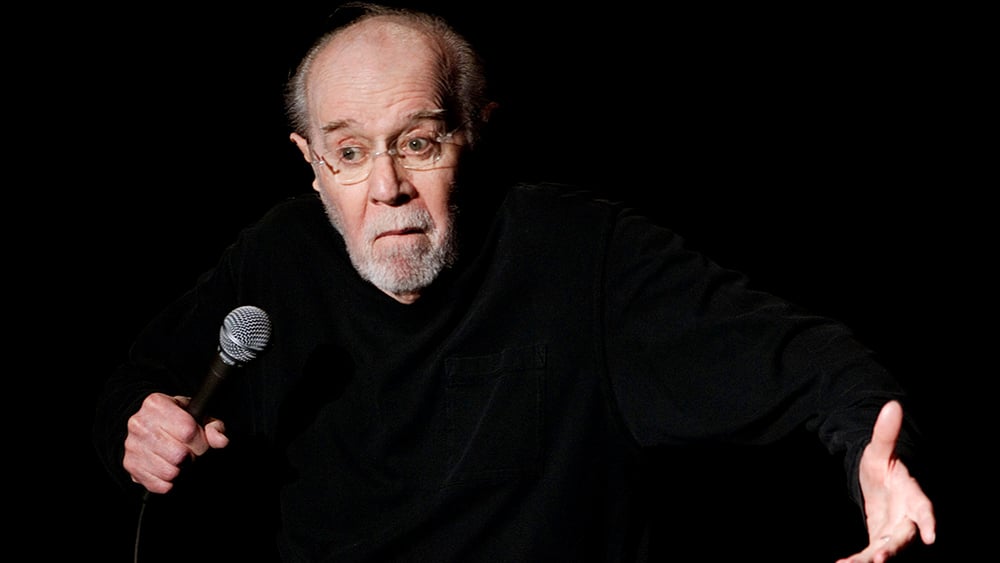George Carlin Estate Files Lawsuit Against Group Behind AI-Generated Stand-Up Special: ‘A Casual Theft of a Great American Artist’s Work’::George Carlin’s estate has filed a lawsuit against the creators behind an AI-generated comedy special featuring a recreation of the comedian’s voice.



Ive been thinking about this a lot and if you think about this like they are selling a stolen product then it can be framed differently.
Say I take several MegaMan games, take a copy of all the assets, recombine them into a new MegaMan game called “Unreal Tales of MegaMan”. The game has whole new levels inspired by capcom’s Megaman. Many would argue that the work is transformative.
Am I allowed to sell that MegaMan game? I’m not a legal expert but I think the answer to that would generally be no. My intention here is to mimic a property and profit off of a brand I do not own the rights too.
Generative AI uses samples of original content to create the derivative work to synthesize voices of actors. The creator of this special intention is to make content from a brand that they can solely profit from.
If you used an AI to generate a voice like George Carlin to voice the Reptilian Pope in your videogame, I think you would have a different problem here. I think it’s because they synthesized the voice and then called it George Carlin and sold it as a “New Comedy Special” it begins to fall into the category of Bootleg.
You couldn’t sell that game, even if you created your own assets, because Mega Man is a trademarked character. You could make a game inspired by Mega Man, but if you use any characters or locations from Mega Man, you would be violating their trademark.
AI, celebrity likeness, and trademark is all new territory, and the courts are still sorting out how corporations are allowed to use a celebrities voices and faces without their consent. Last year, Tom Hanks sued a company that used an IA generated version of him for an ad, but I think it’s still in court. How the courts rule on cases like this will probably determine how you can use AI generated voices like in your Reptilian Pope example (though in that case, I’d be more worried about a lawsuit from Futurama).
This lawsuit is a little different though; they’re sidestepping the issue of likeness and claiming that AI is stealing from Carlin’s works themselves, which are under copyright. It’s more similar to the class action lawsuit against Chat GPT, where authors are suing because the chatbot was fed their works to create derivative works without their consent. That case also hasn’t been resolved yet.
Edit: Sorry, I also realized I explained trademark and copyright very poorly. You can’t make a Mega Man game because Mega Man, as a name, is trademarked. You could make a game that has nothing to do with the Mega Man franchise, but if you called it Mega Man you would violate the trademark. The contents of the game (levels, music, and characters) are under copyright. If you used the designs of any of those characters but changed the names, that would violate copyright.
Celebrity likeness is not new territory.
Crispin Glover successfully sued the filmmakers of Back to the Future 2 for using his likeness without permission. Even with dead celebrities, you need permission from their estate in order to use their likeness.
Yes, but it’s new territory in the sense of AI and creative works. If I were to use a photo of Tom Hanks for commercial purposes, that would be clearly stealing his likeness. If I were to create a drawing or painting of Tom Hanks, it becomes a lot less clear cut, and the answer depends on weather my work can be considered, “transformative.”
Many people using AI today are claiming that the works being created are transformative; they’re not using a picture of Tom Hanks, AI is creating a picture of Hanks from existing pictures, just like a painter uses references. This is essentially what the creators of the Carlin special are saying in their disclaimer; this is an AI impression of Carlin, not the real Carlin, and should be treated like any comedian doing an impression.
This is the new territory. I don’t know how the courts will rule, but based on the recent ruling against the Warhol estate, there will be a high bar for what is considered transformative.
Even professional impersonators must pay royalties to the original artist or their estate. The Carlin example seems to me to be impersonation rather than an impression.
Yeah, I’d agree with that. I hope it comes up at trial.
deleted by creator
Except this is untrue. They were very open that this wasn’t Carlin, but an ai learning from him and mimicking his style.
The better comparison is that to an Elvis impersonator who sings song they themselves wrote explicitly in the style of Elvis and try to sound like him.
I think ai changes the game and we need to rethink the laws, but I don’t see this case lasting long in court, unless there is some law I don’t know about.
They also weren’t selling it as far as I know. They put the whole thing on YouTube and prefaced with this is an AI trying to recreate a Carlin stand up set.
I would disagree on the selling point. If you provide something for “free” that is advertisement supported, you sold it to an advertiser.
Is the video monetized?
Of course